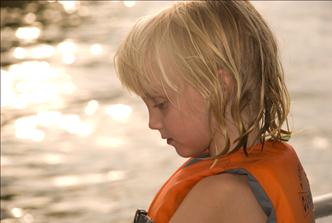Boating Safety
National Safe Boating Week kicks off on May 21st and runs through May 27th this year, just prior to the Memorial Day weekend which is the traditional start of the recreational boating season.
However, safety while boating should always be at the top of our minds. 
In 2009, the Coast Guard counted 736 deaths as a result of recreational boating accidents. Of those who drowned, 84 percent were not wearing life jackets. >
So as you prepare to head out this summer, on your own boat or a boat that you are sharing with a partner…keep these safety tips in mind.
-
Always wear a Personal Flotation Device (PFD) or Life Jacket:
Life Jackets save lives… just having a Life Jacket onboard is not good enough—while it may be mandatory to have a Life Jacket onboard for each person, you never know when a slip could lead to a fall. A person can drown in as little as 60 seconds and wearing that Life Jacket could be the difference between life and death.
In addition to Life Jackets, it is also important to keep your passengers within the maximum occupancy number of your boat.
-
Know the area you are in:
Prior to setting out on your voyage, always review local charts and check for any updates on recent hazards, current conditions, and tide/storm warnings.
Use common sense, and operate at a safe speed at all times — especially in crowded areas. Although there are no speed limits on the water, you could be issued a ticket for excessive speed or reckless operation. It just depends on the situation and the conditions that you are in.
Keep a safe distance from all other boats and always be aware of what is in the water around you and steer clear of any others who may not be paying attention.
Finally, things on a boat on the water look entirely differently at night or even when it’s dusk.
-
Watch your alcohol consumption:
Operating a boat while under the influence is just as dangerous as drinking and driving a car. In fact, the probability of being killed in a boating accident doubles when alcohol is involved.
Even after you set anchor and feel everything is secure, you never know when a line might break free or a strong wind may shift your position. Always be at the ready as even a small amount of alcohol can affect your decision making skills.
-
Boater education:
In general, there are few licensing requirements for recreational boat operators. But you can improve your skills by taking a safe-boating course. A boater education class is an excellent idea not just for the Captain but for the whole family.
-
Take care when operating Personal Watercraft (PWC)
Before you take your PWC out for a spin, take the time to learn how to operate the vessel and the rules of the waterway. PWC operators and passengers must wear a life jacket.
Always maintain at least a 50-foot distance from other PWC’s, vessels, persons, shore, or stationary platform or other object unless operating at idle speed.
-
Stay in touch/Let others know your plans
Your boat may be equipped with the latest and greatest in high-tech electronics, but cellphone coverage can be spotty; phones can get wet, and batteries can die. Before setting sail, first and foremost…let others know where you are going and when you expect to return.
In addition to your cellphone, it is always good to have a modern VHF marine radio onboard. All marine radios sold after June 1999 have a built-in feature called DSC, or digital selective calling, a button that sends an automatic mayday call with your vessel’s name and location. The key for this to work is that your radio must be properly registered, a step that many forget to do.
Making safety a priority is the best way to keep your outings on the water enjoyable and safe. If you are interested in boating but have never purchased a boat for yourself a great way to get started in boating is through boat sharing. Check out Nautical Monkey to learn more and find a boating partnership that meets your needs.

